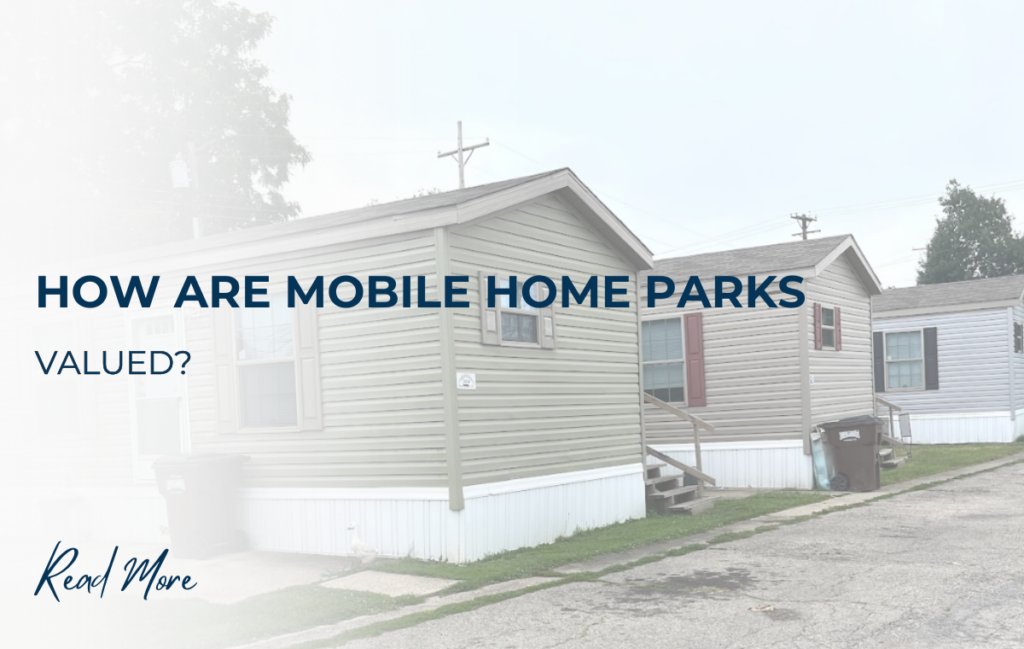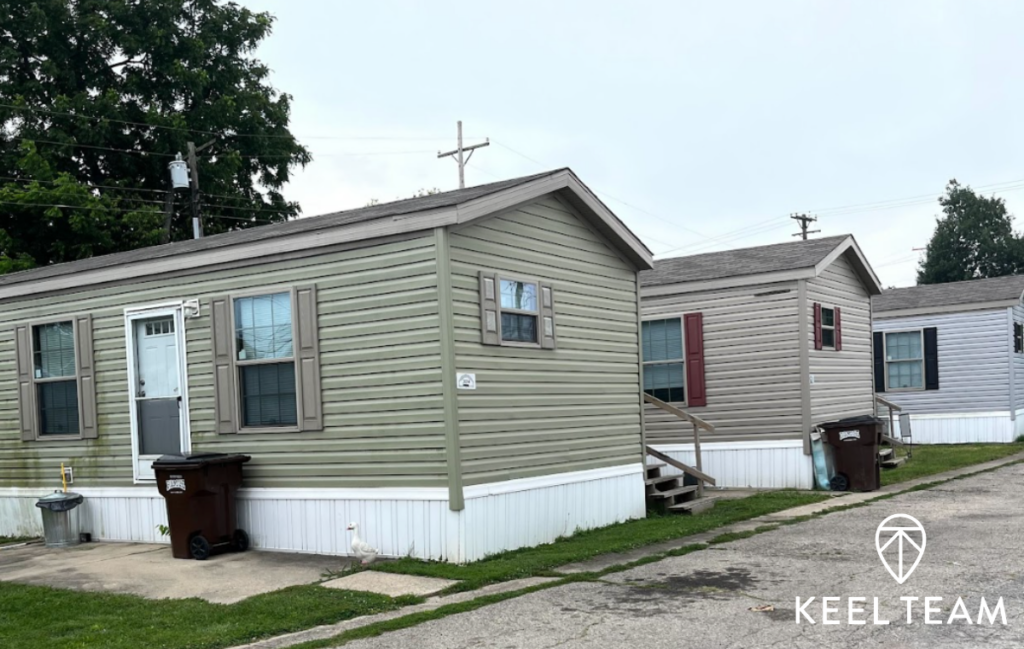How Are Mobile Home Parks Valued?
-
 Tristan Hunter - Investor Relations
Tristan Hunter - Investor Relations

Mobile home parks are unique in commercial real estate because their value is typically determined by the income they generate. Unlike residential properties, mobile home parks aren’t evaluated based on aesthetics or emotional factors. Instead, their valuation relies heavily on financial performance. This guide will break down how mobile home parks are valued and how increasing net operating income (NOI) typically boosts their value.
Mobile Home Parks as Income-Producing Assets
Mobile home parks generate revenue primarily through lot rents from tenants who own their homes but rent the land. This steady stream of income forms the foundation for valuing mobile home parks, similar to other commercial properties.
Valuation starts with the net operating income (NOI), the revenue left after operating expenses are subtracted from the total income. These expenses include utilities, maintenance, management, and insurance. The NOI is a critical metric because it shows how much cash flow the mobile home park generates, which is the key factor for investors assessing value.
How Increasing NOI Boosts Value
Increasing NOI typically increases the value of mobile home parks. You can do this by boosting income, reducing expenses, or both.
1. Increasing Income:
- Raising lot rents: Adjusting lot rents to match market rates can increase income, but owners must keep rents competitive to avoid losing tenants.
- Filling vacant lots: Occupying vacant lots is one of the fastest ways to increase revenue. Each additional tenant boosts the trailer park’s total income.
- Billing back utilities: Implementing utility billing systems allows mobile home park owners to pass utility costs directly to tenants. This can reduce operating expenses and increase NOI, making the property more valuable while encouraging tenants to conserve resources.
2. Reducing Expenses:
- Upgrading infrastructure: Installing energy-efficient utilities like smart meters and modernizing infrastructure can lower costs and boost NOI.
- Optimizing management: Streamlining management and reducing wasteful spending can cut operating expenses, potentially increasing the property’s profitability.
Cap Rate: A Key Metric for Investors
After determining NOI, the capitalization rate (cap rate) is used to estimate the mobile home park’s value. The cap rate is calculated by dividing the NOI by the property’s value or purchase price. It measures the expected return on investment.
For example, a mobile home park generating $200,000 in annual NOI with a cap rate of 8% would have a quick value of $2.5 million. Higher cap rates may offer greater returns, but they also typically carry higher risks. Lower cap rates often indicate a stable investment with less risk but lower returns.
Are you looking for more information? Download the “Top 20 Things I’ve Learned from Investing in Mobile Home Parks” By Andrew Keel. It’s FREE!

Location and Demand Influence Value
Location is critical for mobile home parks. Properties in high-demand areas for affordable housing are usually more valuable. Proximity to jobs, schools, and amenities boosts demand, leading to higher occupancy rates and, in turn, higher value.
Additionally, mobile home parks in desirable locations can often charge higher rents, further increasing NOI and value. Areas with limited affordable housing options also tend to have lower vacancy rates, improving overall performance.
How Mobile Home Parks Are Valued Based on Occupancy Rates
Occupancy rates are a major factor in determining the value of mobile home parks. High occupancy typically offers a more stable cash flow, which in turn increases its value. Conversely, mobile home parks with low occupancy may struggle to generate sufficient revenue, leading to lower valuations. Improving occupancy, either through marketing efforts or infrastructure upgrades, can enhance the value.
Market Trends and Their Impact
Real estate market trends also play a role in the value of mobile home parks. Interest rates, government regulations, and demand for affordable housing can significantly impact property values. When interest rates rise, financing becomes more expensive, which can reduce demand and lower property prices.
Changes in rent control laws or zoning regulations may affect the profitability of mobile home parks. Staying informed about local market conditions helps owners and investors make better decisions about managing and valuing these properties.
Financing Availability
The availability of financing can directly affect the value of mobile home parks. When financing options are abundant and interest rates are low, demand for mobile home parks tends to rise, pushing up property values. On the other hand, limited financing options or higher interest rates can reduce the pool of potential buyers, decreasing the property’s market value.
Reputation and Management Influence Value
Good management and a strong reputation can significantly increase the value of a mobile home park. Trailer parks known for being well-maintained, clean, and safe tend to have higher occupancy and lower turnover, which typically enhances NOI. Poor management or a bad reputation, however, can drive down occupancy and decrease the overall value.
Conclusion: How to Increase Mobile Home Park Value
So, how are mobile home parks valued? The value of a mobile home park is typically based on its ability to generate income, making it a true commercial real estate asset. By focusing on increasing NOI—whether through raising rents, improving occupancy, or cutting expenses—owners can potentially increase their property’s value. Other factors, such as location, market trends, and financing availability, also influence value. Understanding these elements is key to making informed investment decisions and potentially maximizing returns from mobile home park ownership.
Book a 1-on-1 consultation with Andrew Keel to discuss:
- A deal review
- Due Diligence questions
- How to raise capital from investors
- Mistakes to avoid, and more!
Disclaimer:
The information provided is for informational purposes only and is not investment advice or a guarantee of any kind. We do not guarantee profitability. Make investment decisions based on your own research and consult registered financial and legal professionals. We are not registered financial or legal professionals and do not provide personalized investment recommendations.

Tristan Hunter - Investor Relations
View The Previous or Next Post
Subscribe Below 👇





